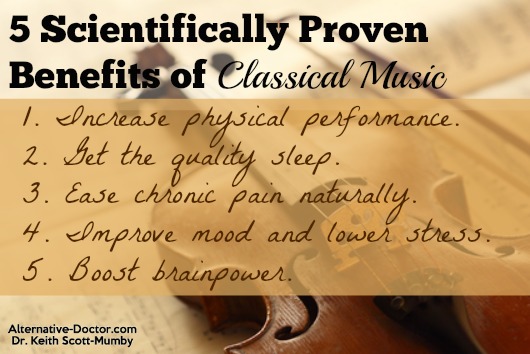There is no doubt that there are benefits to be found in many different genres of music. It can often seem to help when nothing else is able to change our mood or motivate us.
For thousands of years, humans have been intrinsically linked to music in all its forms. It is part of our mourning, our celebrations, and our rituals.
Researchers in Finland set out to prove just how linked we can be and discovered that classical music in particular influences your brain’s gene expression, resulting in positive effects on cognitive function (such as learning and memory) and dopamine production.
It also lowered activity in cells such as synuclein-alpha (SNCA), known to lead to neurodegeneration. Their findings confirm recent studies that found music could offer neuroprotective benefits.
SNCA is one of the primary genes known to indicate risk for Parkinson’s disease and was particularly affected by music therapy. However, “The effect was only detectable in musically experienced participants, suggesting the importance of familiarity and experience in mediating music-induced effects.”

5 Scientifically Proven Benefits of Classical Music
Twenty minutes of Mozart created measurable changes physiologically and mentally. Imagine if you set up your own “music therapy” routine that you used regularly! This isn’t the first study done on the benefits of music, classical or otherwise. The emotional and mental effects are incredible but it is the physical effect of music on your body that is truly fascinating!
Keep reading for five healthy reasons to “press play” right now!
1. Increase physical performance. Several studies have linked the benefits of music to getting the most out of your workout. Music makes you cycle harder, run faster, boosted endurance, and improved overall motivation about exercise. Choosing a favorite selection of songs makes it easier to “get into the zone” and focus on the music rather than the exertion.
2. Get the quality sleep your body needs. One benefit of classical music is that it helps to relax your body physically while calming your mind. College students affected by insomnia showed improvement when they substituted random sleep aids with 45 minutes of classical music therapy.
3. Ease chronic pain naturally. For those in recovery from surgery, dealing with disability, or affected by the ravages of aging, music helps to reprogram the brain to focus on the music rather than the physical pain. It has also been shown to speed healing of damaged tissue.
4. Improve mood and lower stress. If you are feeling anxious, sad, or out of control, take a few minutes to stop for a little while and listen to music. Studies have found that it has the same physiological effect of a massage. This simple therapy technique causes positive chemical reactions within your brain that help with symptoms of stress and depression.
Avoid listening to hard music or club beats if your emotions are in chaos since science has proven that they can make a bad situation worse emotionally. In Germany, they are testing the use of Mozart to lower driver aggression on the nation’s highways.
5. Boost brainpower. Many researchers have discovered that students test far better when listening to classical music. It’s so well documented that it is known as the “Mozart Effect.” Though they aren’t certain of the logistics, those who listen to music take less time to complete tests, get more answers right overall, and gradually improve their IQ.
Stroke patients in recovery showed greater improvement in audible memory and overall mood if they listened to music for two hours each day and music shows great promise in the treatment of epilepsy.
Over the years, scientists have connected the benefits of classical music to everything from the cognitive improvement in children whose mothers exposed them to the genre in vitro to the ability to lower high blood pressure naturally and effectively.
Adding music to your daily life will settle your mind, relax your body, and soothe your spirit. It is free, enjoyable, and it works.
“Music soothes the savage beast.” Indeed.




